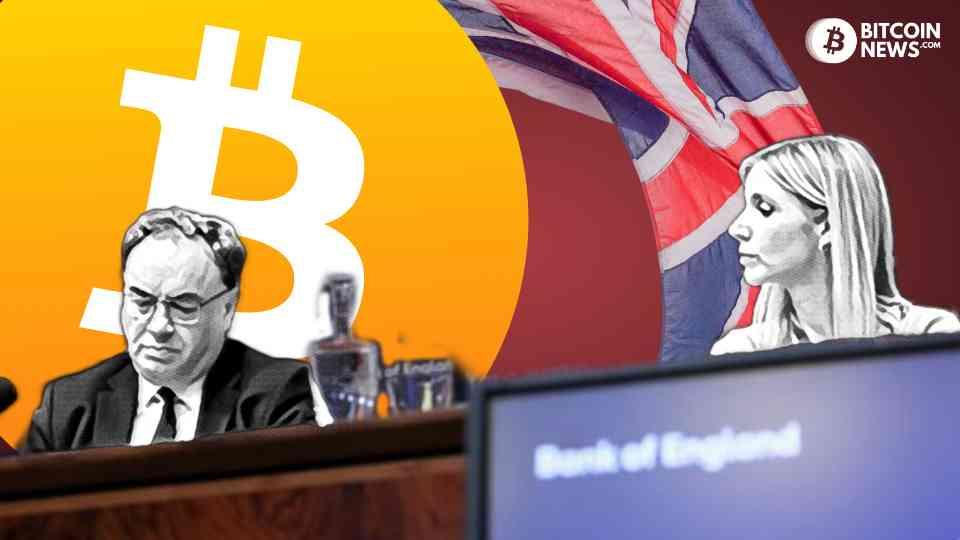Inflation in the U.K. remains stubborn, leading to suggestions that the Bank of England will raise interest rates further. Prolonged high rates are expected to cause significant volatility in asset prices, including bitcoin.
What Is The State Of Inflation In The UK?
Inflation in the U.K. remains far above the Bank of England’s target of 2% per year, although it has fallen from 10.1% in March to 8.7% in April.
Food inflation is still above 15%, considerably worse than other G7 nations, though this tends to be far more volatile than other inflation metrics.
Core inflation, which excludes food and energy, has risen to 6.8%, the highest level since 1992.
Good news: 🇬🇧 UK food inflation came down last month
Bad news: It’s still above 15% 😱 pic.twitter.com/6soKnhjJBr
— Bitcoin News (@BitcoinNewsCom) May 31, 2023
How Will This Affect Interest Rates?
Inflation is still far too high for the British central bank to consider dropping interest rates from the current level of 4.5%.
The Bank of England has raised interest rates 12 times since December 2021, and the chances of lowering them seem to be getting slimmer.
In fact, it’s been suggested that the opposite is more likely, with a hike to 5.5% being expected by the markets.
How Will This Affect Bitcoin?
While high interest rates are expected to put a damper on inflation, it will potentially mean fewer investments in assets such as bitcoin.
Bitcoin is generally considered a risk asset by markets, meaning people are more likely to buy it if they’re unable to get high returns elsewhere.
With interest rates remaining high, people will feel more comfortable keeping their money in savings accounts and will therefore feel less of a need to invest in assets to store value.
Higher interest rates will also raise the cost of borrowing, and mortgage payments will increase. This means people will have less disposable income, which tends to negatively affect prices in the stock market.
While bitcoin has recently lost its correlation with the stock market, it is likely to be affected in the same way unless there is a particularly strong urge to buy bitcoin as a hedge against the failing fiat monetary system.
Ultimately, as a series of situations converge, such as the banking crisis, U.S. debt ceiling crisis, and high inflation in not just Britain but Europe and North America, the price of bitcoin could experience some serious volatility.
Volatility is something long-time bitcoin hodlers are used to, but new investors might be put off by the roller-coaster journey we’re about to embark on.
Ultimately, time will tell if this troubling situation turns out to be the on-ramp for bitcoinization in the Western world.



